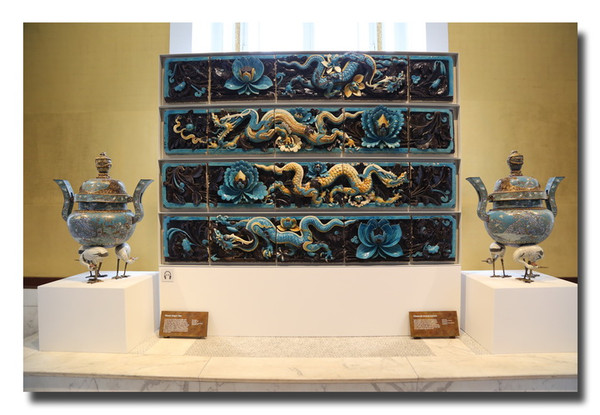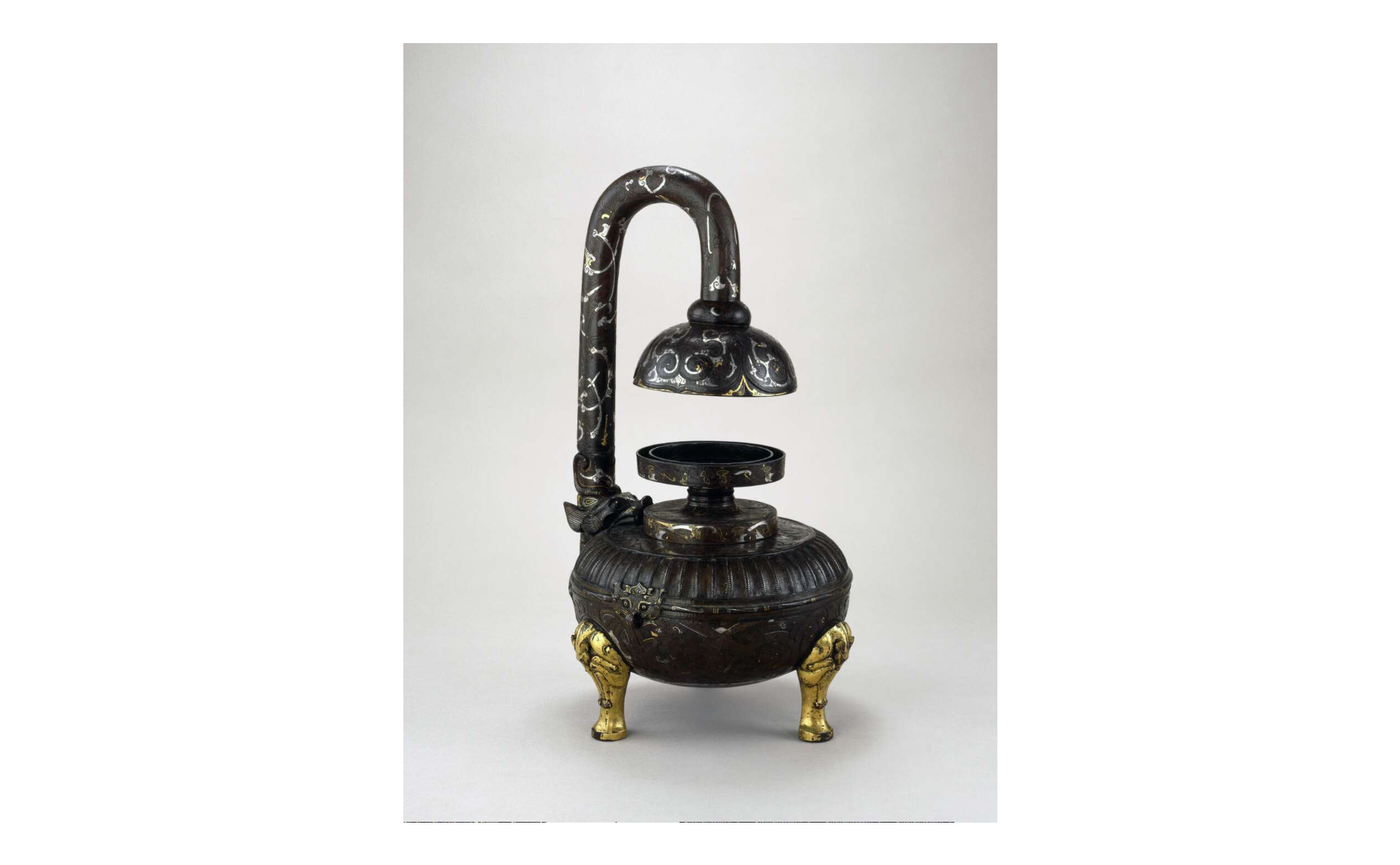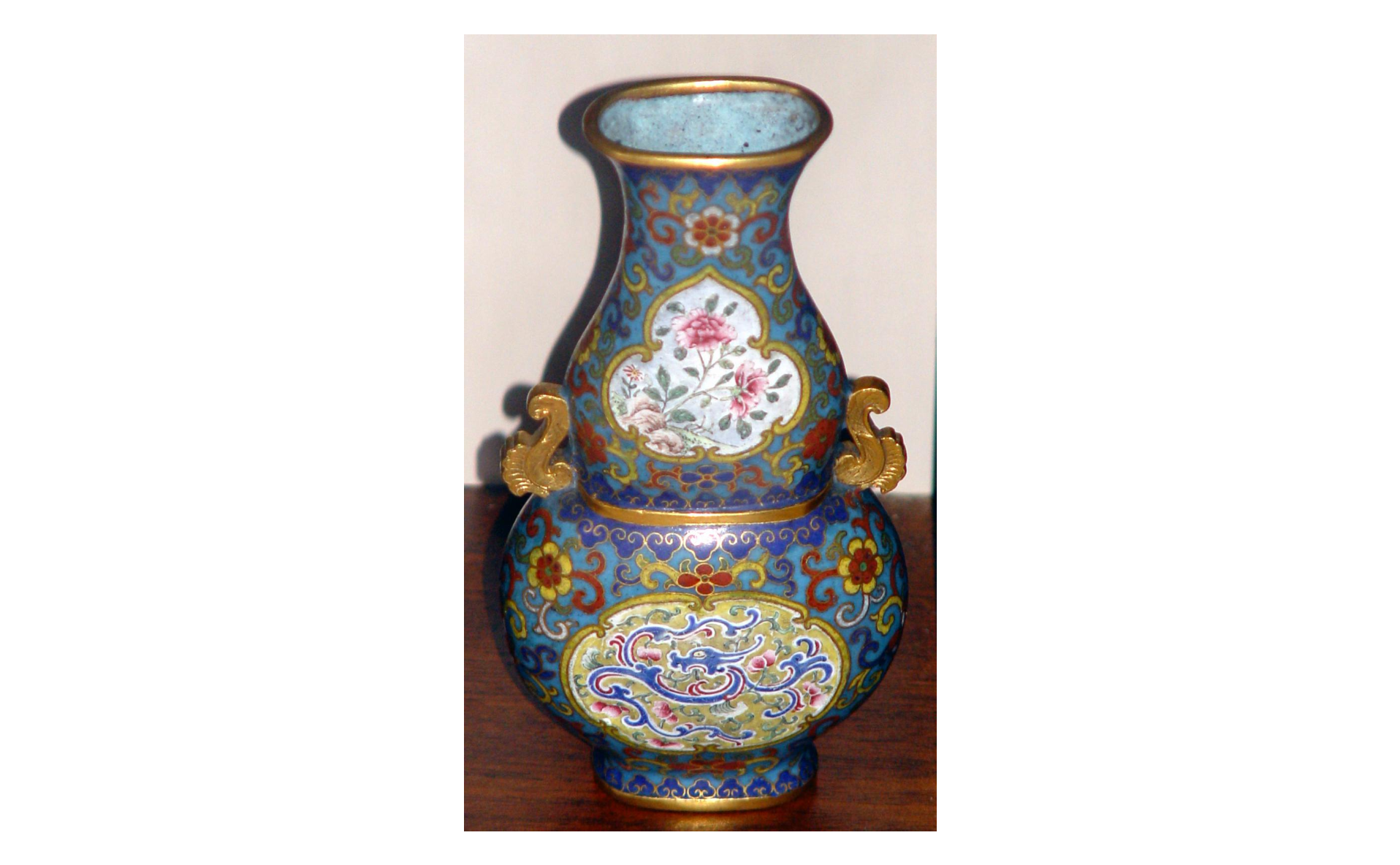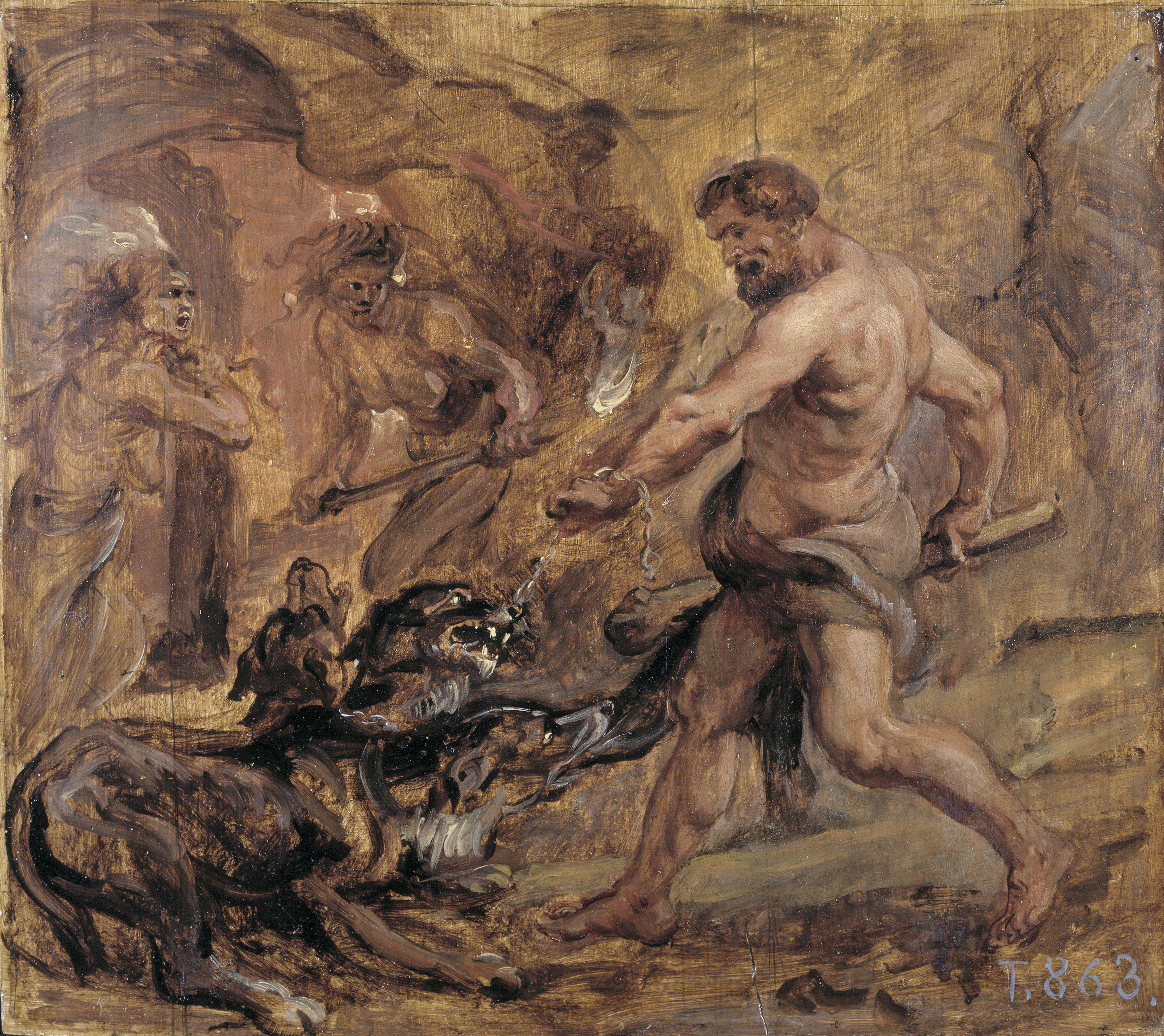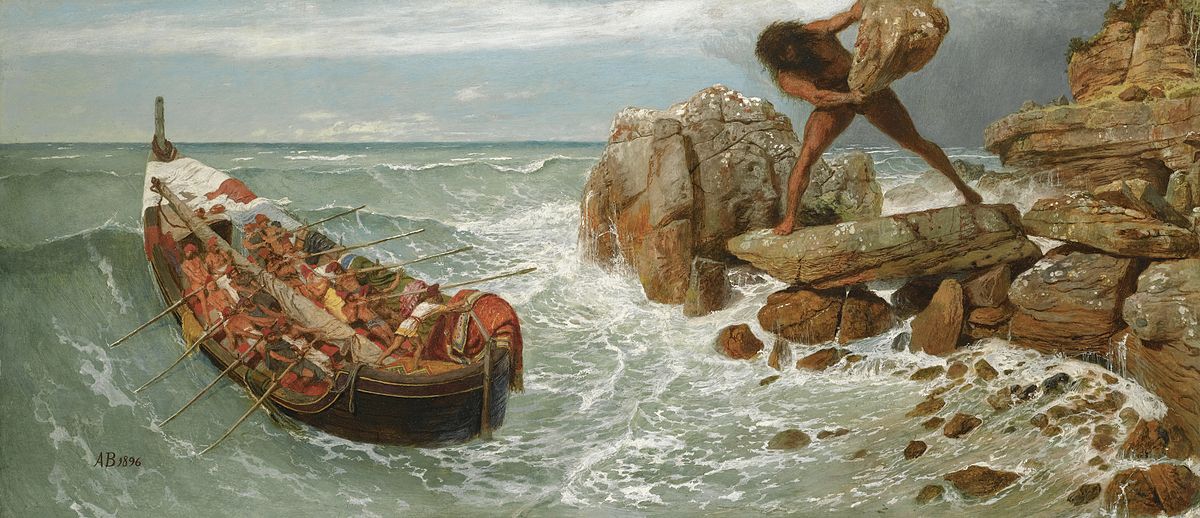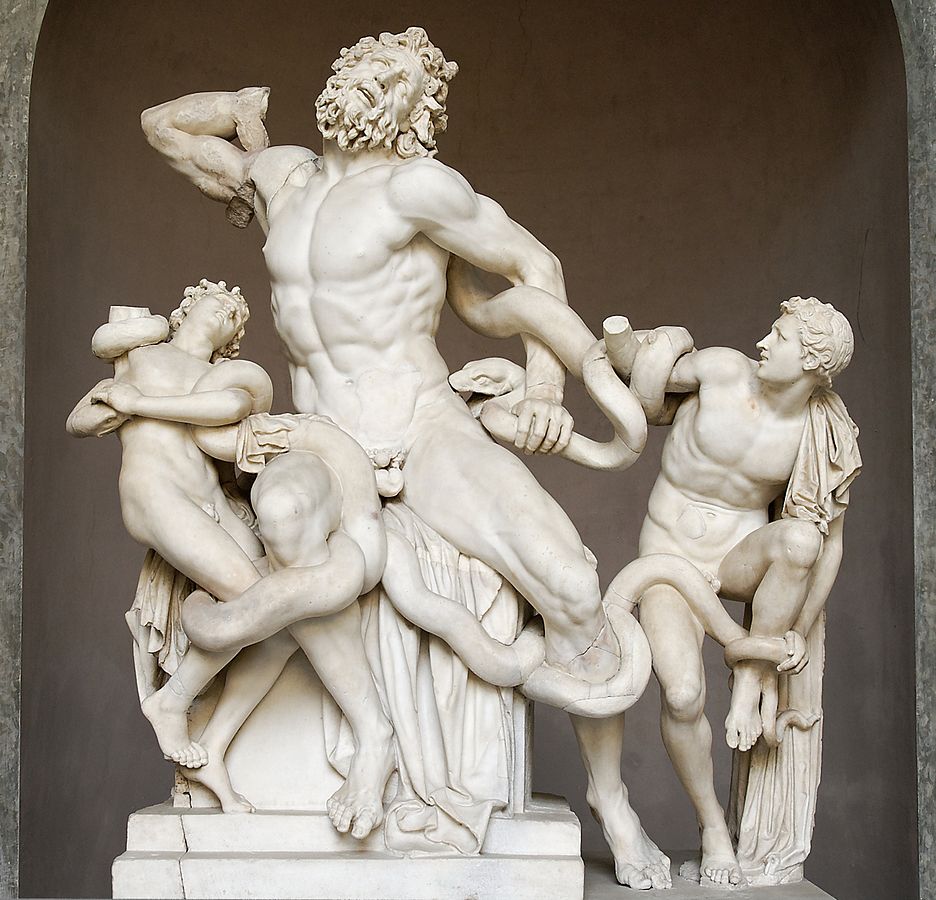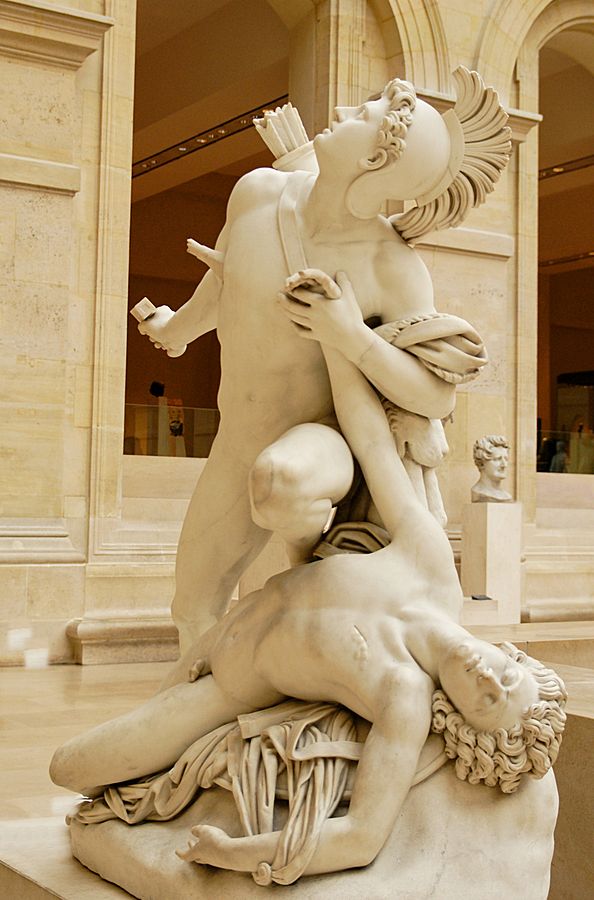Europa and the Bull
Wheelock: Chapter 14
*Eurōpam[1], fīliam Agēnoris[2], Iuppiter, rēx deōrum, vīdit. Victus amōre eius, dīxit, “Sine hāc bellā puellā ego nōn poterō vīvere. Sed quid agam? Haec virgō, sī eam vī superābō, mē nōn amābit, et Iūnō, sī īnsidiās meās inveniet, mē castīgābit. Arte igitur Eurōpam ad mē dūcere dēbeō.”
Iuppiter sibi dedit fōrmam taurī. Cum celeritāte ē suā arce in caelō per nūbēs ad terram cucurrit. Eurōpa cum suīs amīcīs errāverat in loca remōta. Ad hās vēnit ille magnus taurus. Fūgērunt aliae puellae; sōla Eurōpa (nam animālia semper amāverat) remānsit cum taurō. Collum eius suīs bracchiīs Eurōpa tenuit; sine morā trāns mare ille eam trāxit!*
*Eurōpa perīculum sēnsit et exclāmāvit, “Ō!”. Dīxit Iuppiter, “Bella puella, nūllae malae sententiae sunt in meō animō. Nōn taurus, sed deus ego sum. Nōn mors, sed fāma glōriaque tibi venient, nam tuum nōmen magnī poētae cum meō iungent.”

[1]: Europa, a woman name
[2]: Agenor, king of Tyre in Phoenicia
Translation:
Jupiter, the king of gods, has seen Europa, Agenor’s daughter. Conquered by his love, he said, “Without this beautiful girl I cannot live. But what shall I do? If I get that girl by force, she won’t love me, and Juno, if she finds my plan, she will chastise me. Therefore, I should guide Europa to me skillfully.”
Jupiter gave himself the shape of a bull. He ran out of his citadel in the heaven to the land through clouds fast. Europa was wandering in a remote place with her friends. That big bull came to her. Other girls fled; only Europa (for she always loved animals) remained with the bull. Europa hug the bull’s neck with her arms; it took her across the sea immediately!
Europa felt danger and cried out, “Oh!”. Jupiter said, “Beautiful girl, there are no evil thoughts in my mind. I’m not a bull, but a god. Not death but fame and glory will come to you, for your name will join mine by great poets.”
How the Aegean got its name
Wheelock: Chapter 15
Athēnīs[1] vīvēbant Thēseus[2] eiusque pater, rēx Aegeus[3]. Illō tempore cīvēs rēgī īnsulae Crētae[4] poenās dabant: VII puerōs et eundem numerum puellārum ad eum mittēbant. Haec miserae victimae Mīnōtaurō[5] suās vītās dabant. Suō patrī Thēseus dīxit, “Hunc malum mōrem tolerāre nōn possum! Ego ipse Mīnōtaurum nōn timeō. Istum inveniam et, sī poterō, meīs vīribus vincam. Dīs meam fortūnam committō. Alba vēla vidēbis, ō mī pater, sī mortem fugiam.” Itaque Thēseus sē cum aliīs victimīs iūnxit et trāns mare ad Crētam nāvigāvit. Ibi suō labōre Mīnōtaurum superāre et arte Ariadnae[6], suae amīcae, fugere poterat.
Aegeus suum fīlium in scopulō diū exspectāverat; nunc nāvem ipsam suī fīliī vidēre poterat. Sed vēla nigra, nōn alba sunt! Stultus Thēseus suum cōnsilium memoriā nōn tenuerat; vēla nōn mūtāverat. Miser Aegeus sine morā sē iēcit in mare “Aegaeum”.
[1]: Athens, a Greek city
[2]: Theseus, a Greek hero from Athens
[3]: Aegeus, king of Athens, Theseus’ father
[4]: Crete, a large island south of Greek mainland
[5]: Minotaur, a half-man, half-bull creature in the labyrinth of Minos
[6]: Ariadne, Cretan princess
Translation:
Theseus and his father, king Aegeus, lived in Athens. At that time the citizens (ruled by him) paid the penalty to Crete island: 7 boys and the same number of girls were sent to Crete. These poor victims gave their lives to Minotaur. He said to his father Theseus, “I cannot bear this bad custom! I’m not afraid of that Minotaur. I will find it and, if I could, beat it with my strength. Gods guarantee my fortune. If I escape from death, my father, you will see white sail (on the ship).” Thus Theseus join him with other victims and sailed to Crete across the sea. There he beat Minotaur with his labor and with his friend Ariadne’s skill, fled away.
Aegeus expect his son for a long time on the cliff; now he could see the same ship of his son. But there are black sails, not white! Unwise Theseus hasn’t kept his plan in memory; he didn’t change the sails. Miserable Aegeus jumped into the “Aegean” Sea immediately.
The wrath of Achilles
Wheelock: Chapter 16
Achillēs[1] nōn sōlum vir fortis potēnsque, sed etiam Thetidis[2] deae fīlius erat. Ille cum Agamemnone[3] aliīsque Graecīs Trōiam vēnerat et bellum longum difficileque gesserat. Sed nunc post IX annōs īra ācris eum movēbat; nam fēminam captīvam eī cāram Agamemnōn cēperat. Itaque Achillēs mātrem suam vocāvit: “Iuvā mē!” In marī Thetis eum audīvit et ad eum cucurrit: “Tuās sententiās intellegō, mī dulcis fīlī,” dīxit. “Omnēs Graecī tē magnō in honōre habēre dēbent; sine tē enim Trōiānōs vincere nōn possunt. Cōgitā haec: sī nunc hōc ex bellō fugiēs, tibi erit parva glōria, sed vīta longa; sī autem hōc locō manēbis, magnam glōriam inveniēs, sed tuam vītam āmittēs.”
“Ō beāta māter, bonum animum habē!” dīxit Achillēs. “Omnibus hominibus vīta brevis est. Ego ipse celerem mortem nōn timeō. Sed, quoniam īra mē tenet, bellum nōn geram.” Quam magna est vīs īrae!
[1]: Achilles, best of the Greek warriors
[2]: Thetis, sea-nymph, mother of Achilles
[3]: Agamemnon, leader of the Greek army against Troy
Translation:
Achilles is not only a man with strength and power, but also the goddess Thetis’ son. He came to Troy with Agamemnon and other Greeks and waged an endless and tough war. But now after 9 years fierce anger moved him; for Agamemnon took away the dear woman caught by Achilles. Therefore, Achilles called his mother: “Help me!” Thetis heard him in the sea and rush to him: “I understand your thoughts, my sweet son,” she said. “All the Greeks should treat you in great respect, because without you they cannot conquer Trojans actually. Consider this: if now you leave this war, there will be little glory for you, but you will have long life; if you stay here, you will find great glory, while you will lose your life.”
“My dear mom, take heart!” said Achilles. “All humans’ life is short. I am not afraid of early death. But, since angry takes over me, I will not join the war.” How great the force of anger is!
